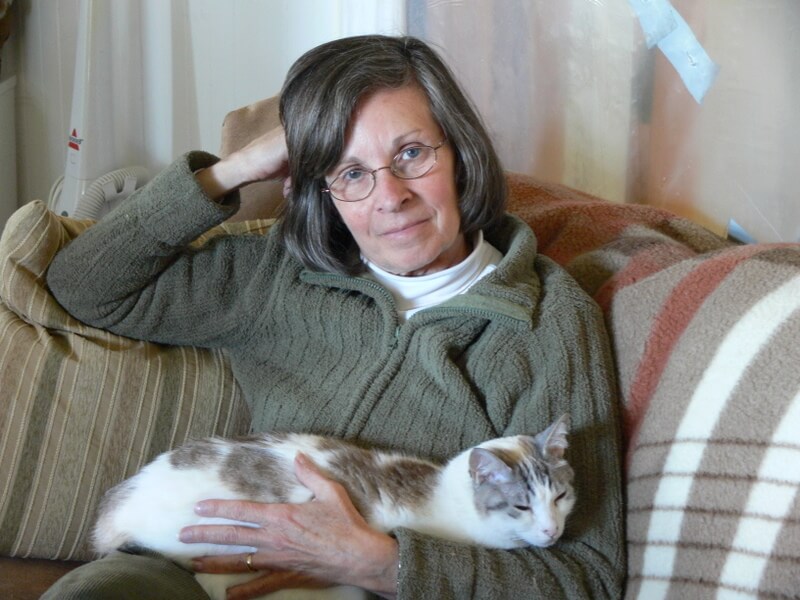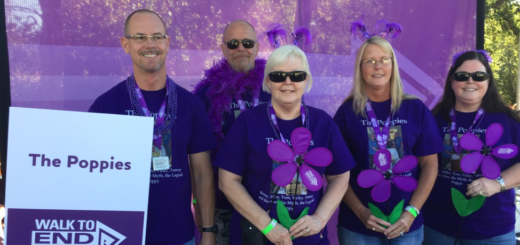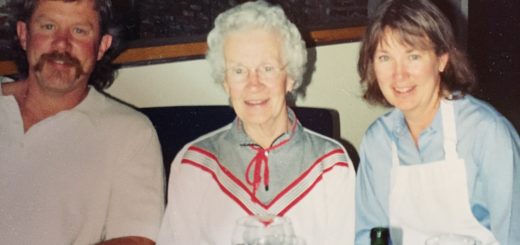Support group facilitator shares caregiving tips
Dr. Barry Phegan’s wife, Judy, was diagnosed with frontotemporal dementia in 2009 and died in 2012. While caring for his wife, Barry attended two caregiver support groups offered by the Alzheimer’s Association. After his wife died, Barry became the facilitator of one of these Alzheimer’s Association groups in San Rafael.
Barry was kind enough to pull together some words of wisdom and tips for caregivers, based on his learnings and suggestions shared by other group members. He notes that we are each different and that not all suggestions will be relevant for everyone’s situation.
Words of wisdom, from caregivers, for caregivers
- Take it one day at a time. Try not to spend too much time worrying about what might happen, especially things you can’t change. Instead of focusing on the disease and things you or your loved one can’t do, focus on living and what you both can do.
- Each person is unique, and each situation is unique. Have empathy with where that person is in the process.
- Try to put yourself in their shoes. Living with dementia can often be confusing, frustrating or scary. What would it be like to find a stranger in bed next to you or standing in your kitchen? When they do something that frustrates you, consider what it might feel like to be the person living with dementia.
- Help them feel safe. Often when a person with dementia says, “I want to go home,” they are expressing a desire to be someplace familiar, comfortable, and safe. Look for ways to help create those feelings.
- Take care of yourself as a caregiver. Get professional help early – reach out to the Alzheimer’s Association or another trusted resource. Know what support services are available and don’t be afraid to reach out for help. Take respite breaks: time you can get away from the caregiving situation. Group members also encourage doctors and other professionals to ask caregivers what they are doing to care for themselves and if needed, help them plan.
- Your friends will probably be confused, as you were at the start. Some may not know how to respond or may drift away. Don’t be afraid to share information and/or give them specific suggestions on how they can help you and your loved one.
A story on adapting to the person’s reality
Jim is a friend of Barry’s. His wife had dementia and didn’t recognize him except as a familiar face. Jim told Barry this story: “I was upstairs in our house with my wife. She was sadly telling me that her husband was gone, away with the Army in Afghanistan.
“I went downstairs, put on my army uniform, walked out the lower door and up the side of the house to the front door. I rang the doorbell. When she opened the door I said, “˜I’m Jim your husband and I’m home now.’
“She lit up, delighted to have me back.” Barry was impressed that Jim had a very sophisticated, practical, and empathetic approach to the reality of dementia.
Caregiver communication tips as the disease progresses
- Instead of saying “no,” say “yes, and.” Take a tip from improv comedians. Do not contradict your loved one or argue about who is right. They may be experiencing the same situation very differently from you due to how the disease has affected their brain. Being completely honest may not be the best action in some situations.
- Try to stay calm. Your loved one may still be able to pick up on your mood. Remaining calm may help minimize your partner’s anxiety or stress.
- Practice changing the subject, using simple statements. “I’m going to make some tea for us now.” “Let’s come over here and sit at the table.”
- Avoid probing questions. Don’t increase a person’s stress by asking for explanations. Accept what they say or do and move forward.
- Listen. If a person living with dementia wants to volunteer a familiar and comfortable story, relax and enjoy it, even if it’s the 100th time or isn’t completely accurate.
- Give simple directions. Don’t explain far in advance what’s going to happen. The next simple step, such as “please put on your coat” or “let’s get in the car” is enough. Vague, future, or multi-step instructions may bring confusion, stress, anxiety, and/or resistance.
End-of-life tips
When Barry attended support groups as a caregiver, he participated in discussions related to end-of-life care. Barry’s wife had an advanced care directive.
When Judy ended up in the hospital with internal bleeding, she was totally confused and didn’t understand what was happening. Barry was able to communicate with her doctors, so they did not take extraordinary measures to extend her life.
“Fortunately, my caregiver support group had discussed exactly that situation the previous week and also about six months before that,” shared Barry. “Though I was well prepared, it was one of the hardest decisions I’ve ever made. But I was surprised how quickly and certainly I acted.” Judy died four days later with Barry by her side.
If you would like to learn more about free support groups and education programs available from the Alzheimer’s Association, visit our website or call our 24/7 Helpline at 800-272-3900. You can also join Barry in volunteering for the Alzheimer’s Association.
More Resources



















